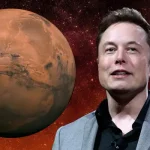Elon Musk’s Healthcare Blitz: A Billion-Dollar Lifeline for Forgotten Kids or a Billionaire’s Ego Trip?
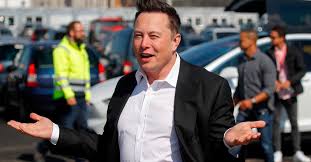
Elon Musk’s Healthcare Blitz: A Billion-Dollar Lifeline for Forgotten Kids or a Billionaire’s Ego Trip?
Introduction: A Bold New Healthcare Initiative
Elon Musk, the billionaire entrepreneur known for revolutionizing industries from electric vehicles to space travel, has recently announced a billion-dollar healthcare initiative aimed at providing medical support to underserved children across the globe. His involvement in healthcare, particularly focused on vulnerable populations, has stirred both excitement and skepticism. Musk, who has already made waves with his ventures in space, energy, and transportation, now aims to apply his innovation-driven mindset to one of society’s most pressing needs: access to quality healthcare.
This ambitious initiative comes as part of Musk’s broader philanthropic efforts, which have largely focused on advancing sustainable energy solutions and space exploration. However, many have questioned whether his newfound focus on healthcare is truly an altruistic attempt to help those in need or if it is simply another ego-driven project intended to enhance his public image. Is this billion-dollar healthcare blitz a lifeline for children who have long been forgotten by the traditional healthcare system, or is it another example of a billionaire’s personal quest to reshape an industry for his own benefit?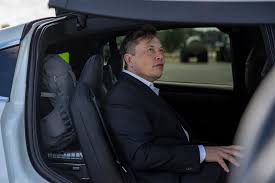
A Healthcare Revolution: Musk’s Vision for Access and Innovation
Musk’s healthcare initiative is driven by his vision to disrupt and improve existing systems, just as he has done in industries such as automotive and space. Drawing on the success of companies like Tesla and SpaceX, Musk believes that cutting-edge technologies, efficiency, and innovation can be applied to healthcare in a way that has never been done before. The project aims to focus on providing underserved children, particularly those in low-income or war-torn regions, with access to advanced medical treatments, preventative care, and cutting-edge healthcare technologies.
At the heart of Musk’s healthcare blitz is his focus on making high-quality care affordable and accessible. With a track record of challenging the status quo, Musk is likely to push for a system that utilizes modern technologies such as AI, telemedicine, and robotics to improve healthcare delivery. His initiative will likely emphasize the integration of data-driven medical approaches, where health monitoring and diagnosis are enhanced by artificial intelligence and machine learning, a system that Musk has championed in his other ventures. By leveraging advanced technologies, Musk hopes to streamline healthcare delivery and reduce the costs associated with traditional systems, making healthcare more affordable for families in need.
Musk’s initiative is poised to bring healthcare directly to children in regions where access is limited or non-existent. This could involve building state-of-the-art mobile healthcare units, developing telehealth programs for remote consultations, or partnering with local governments and organizations to create sustainable health infrastructure. The goal is not just to treat illnesses but also to provide preventative care, ensuring that children receive the medical attention they need before problems escalate. For Musk, it’s about reimagining what is possible in healthcare, much like he has done in electric vehicles and rockets.
The Billionaire’s Ego Trip? Questions About Motivation and Impact
Despite Musk’s vision for a brighter future for global healthcare, many critics argue that his billion-dollar healthcare blitz could be more about personal branding and legacy-building than genuine altruism. Musk has often courted controversy with his outspoken public persona, and some critics believe that his healthcare initiative may be no different. The question remains: Is this a lifeline for underserved children, or a PR stunt designed to elevate Musk’s image?
One of the key criticisms revolves around the notion that billionaires like Musk have an outsized influence on social systems that should be shaped by governments and public institutions. Critics argue that Musk’s philanthropic endeavors may serve to reinforce the idea that wealthy individuals—not democratically elected governments—are the ones best equipped to tackle systemic issues like healthcare access. This could undermine the role of public institutions and policies that are specifically designed to address inequality and ensure equitable access to healthcare. Instead of focusing on systemic reform, Musk’s approach may encourage the continuation of a system where the wealthy can choose which causes to champion, while leaving larger, more complex issues like healthcare inequality unaddressed.
Furthermore, Musk’s high-profile ventures, such as SpaceX and Tesla, often carry with them a sense of elitism, and many are skeptical that his healthcare initiative will truly be as accessible as he claims. If Musk’s project mirrors the luxury-focused products of his other companies, some worry that it could be tailored more toward wealthy populations, or worse, used to create a market-driven system that only exacerbates the disparities between the rich and poor. Critics argue that without clear and transparent plans for how the money will be used, and who will benefit, the initiative may be little more than an expensive experiment for Musk’s ego.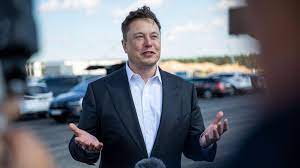
The Real Impact: Can Musk Deliver Where Governments Have Failed?
Despite these criticisms, there is no denying the scale and potential impact of Musk’s initiative. If executed effectively, the program could provide critical medical services to children in regions where healthcare infrastructure is either underdeveloped or completely absent. The reality is that governments and international organizations often struggle to provide adequate healthcare to their populations, especially in areas ravaged by conflict or poverty. Musk’s unique ability to mobilize resources, innovate, and streamline complex operations could be precisely what is needed to bring long-term change.
Musk’s track record of innovation is perhaps his greatest asset in this endeavor. SpaceX, for example, has revolutionized space travel with its reusable rockets, significantly reducing the cost of launching payloads into space. Similarly, Tesla has helped pave the way for the widespread adoption of electric vehicles, driving down costs and making sustainable energy more mainstream. If Musk can bring this level of innovation to healthcare, there’s a chance that he could drastically reduce costs, expand access, and provide better care, especially for marginalized populations.
Moreover, Musk’s influence and ability to draw attention to causes could help bring more resources to global healthcare issues. His involvement may inspire other tech moguls and corporations to contribute their resources to solving problems in underserved communities. This could lead to more public-private partnerships that make healthcare not just a privilege for the wealthy but a basic right for all.
A Future Where Innovation Meets Compassion?
Ultimately, Musk’s billion-dollar healthcare blitz could have the potential to serve as a blueprint for how the future of healthcare could look—where innovation, technology, and compassion intersect to provide life-saving services to those who need them the most. If Musk stays true to his mission and ensures that his initiative remains focused on accessibility, affordability, and sustainable impact, it could transform the healthcare landscape for generations to come.
However, the success of the initiative will depend largely on how well Musk can balance his ambitions with the practicalities of addressing the healthcare needs of underserved children. It will be crucial for Musk and his team to work closely with local communities, healthcare professionals, and global organizations to ensure that the program is implemented effectively and ethically.
Conclusion: A Visionary or an Ego Trip?
Elon Musk’s billion-dollar healthcare initiative is a fascinating and ambitious project that has the potential to revolutionize healthcare access for underserved children. Whether it becomes a true lifeline for those in need or a billionaire’s ego trip will depend on the execution and transparency of the initiative. While Musk’s innovative track record gives hope for positive change, the skepticism surrounding his motivations and approach cannot be overlooked.
Only time will tell if Musk’s healthcare blitz will make a lasting impact on the lives of forgotten children across the globe, or if it will become just another high-profile project in the billionaire’s ever-expanding empire. What is certain, however, is that Musk’s foray into healthcare has brought attention to one of the world’s most pressing issues, and that in itself could be a catalyst for future change.
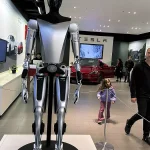
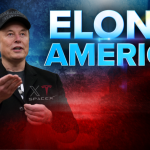

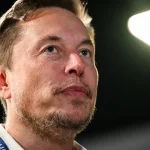
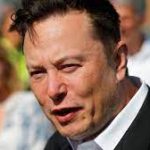

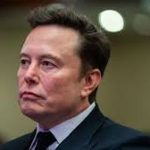
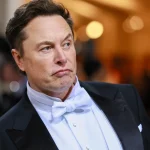

 Elon Musk Donates $50 Million to Children’s Hospital: A Heartfelt Gift for Young Lives
Elon Musk Donates $50 Million to Children’s Hospital: A Heartfelt Gift for Young Lives